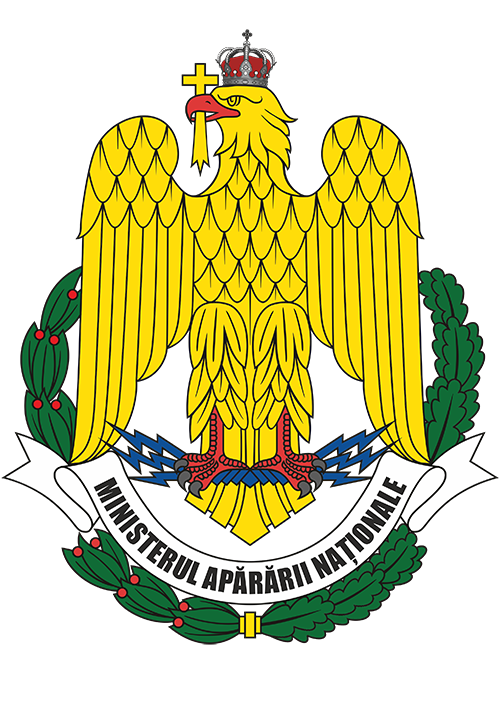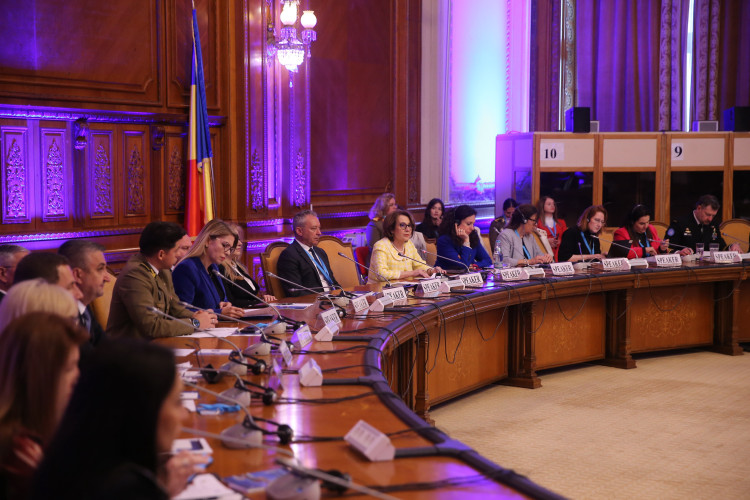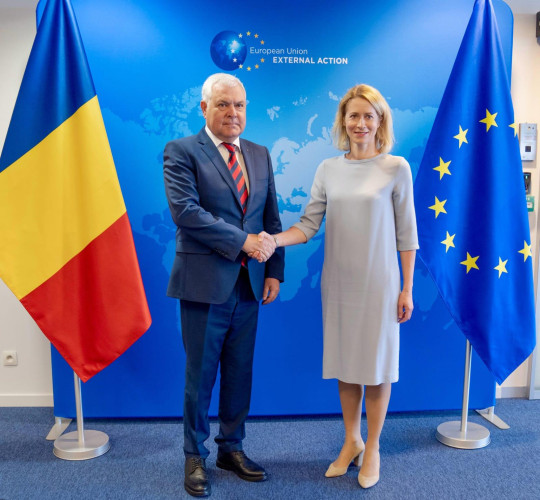
Information and Public Relations Directorate
E-mail: presamapn@mapn.ro
Contact: 021-319.60.22
JOINT STATEMENT BY THE DEFENCE MINISTERS OF THE BUCHAREST 9

1. We, the defence ministers of Bulgaria, the Czech Republic, Estonia, Hungary, Latvia, Lithuania, Poland, Romania and the Slovak Republic met today in the Bucharest 9 format, to further discuss, consult and coordinate on the current security environment in the Euro-Atlantic area and to advance our cooperation in order to promote further consolidation of deterrence and defence on the Eastern Flank.
2. NATO, on its 75 years anniversary, remains the strongest Alliance in history. At the recent Washington Summit, Allies reaffirmed their enduring transatlantic bond, unity, and solidarity in the face of both main threats, Russia and terrorism, and other security risks and challenges. As a result of Russia’s full-scale invasion of Ukraine, peace and stability in Europe has been shattered and gravely undermined global security.
3. As reaffirmed at the Washington Summit, Russia, with its expanding military capabilities, remains the most significant and direct threat to Allied security. We cannot discount the possibility of an attack from Russia against the territorial integrity and sovereignty of the Allies, along with other provocative activities. As stated many times before, NATO does not seek confrontation and poses no threat to Russia.
4. We strongly condemn Russia’s illegal war of aggression against Ukraine and urgently call for the immediate cessation of all attacks on Ukraine’s civilian infrastructure and population. We continue to stand in unwavering support of Ukraine and its brave people as they heroically defend their nation, land and democratic values.
5. Responding to hybrid challenges is primarily a national prerogative, but also, we are ready to contribute to allied efforts to deter and defend against Russia’s rising hybrid actions, including those conducted through proxies. Acts of sabotage, provocations at Allied borders, malicious cyber activities, electronic interference, disinformation campaigns and malign political influence are among the hybrid actions directed by Russia against Allies and our partners, aimed at destabilizing Euro-Atlantic security. We will make every effort to enhance national resilience and capabilities to effectively further strengthen NATO resilience, thus more effectively address these complex threats. Our pledge to defend every inch of Allied territory is iron-clad. In line with this commitment, we are taking steps both nationally and jointly as allies to strengthen the security of the external borders of NATO / EU against potential hybrid and conventional threats. We support initiatives to fortify NATO / EU borders with Russia and Belarus, as these projects will strengthen security of all NATO Allies and EU member states.
6. We express our profound concern over the repeated incursions of NATO airspace, in Poland, Romania, Latvia and other NATO countries by the Russian Federation’s drones and missiles, and the escalations of tensions along NATO’s borders. This is a new reality that cannot be left disregarded. We need a collective answer within NATO to challenges posed by modern weapons and technologies including through boosting our capabilities of detecting, identifying and, if necessary, engaging low and slow flying objects. Furthermore, we must work to strengthen NATO’s overall Integrated Air and Missile Defence (IAMD), including through the swift implementation of the agreed IAMD Rotational Model. Moreover, we support initiatives to utilize all available opportunities and resources within the EU and NATO to increase European air and missile defence capabilities. We reiterate the need for Russia’s full compliance with international law, including the inviolability of NATO airspace.
7. In view of the upcoming NATO Defence Ministers meeting, we remain resolute in our efforts to strengthen the Eastern Flank in a coherent and robust manner, from the Baltic to the Black Sea. Collective defence remains NATO’s core and enduring principle. This meeting will provide an opportunity to assess the implementation of key decisions regarding NATO’s deterrence and defence against all challenges and threats, across all domains, as agreed at the Madrid, Vilnius and Washington Summits.
8. We are committed to ensure that the Alliance fully resources the new generation of NATO defence plans to ensure that every inch of Allied territory is defended at all times. We reaffirm the importance of Allies providing the required high-readiness forces and capabilities, and infrastructure, across all domains to achieve this. To make it happen, consistent with our obligations under Article 3 of the Washington Treaty, we make an enduring commitment to invest at least 2% of our GDP annually on defence. We are determined to continue strengthening allied forward defences on the Eastern Flank with all Allies by fully implementing, integrating, training and exercising NATO’s Forward Land Forces, ensuring they are ready to respond to any threats.
9. We express our commitment to developing mobility corridors for allied forces and capabilities, ensuring rapid deployment across the entire SACEUR’s Area of Responsibility. At the same time, we are committed to ensuring secure, resilient, and sustainable energy supplies, including fuel, also through the extension of the NATO European Pipeline System and ensuring the protection of Critical Underwater Infrastructure (CUI). Cooperation and coordination in these areas, including by involving NATO and EU common funding as appropriate, are crucial for collective defence.
10. Acknowledging that military support is offered on a sovereign, voluntary basis, Allies intend to continue providing non-lethal, political, economic, financial, and humanitarian support to Ukraine. NATO efforts will be focused on establishing the NATO Security Assistance and Training for Ukraine (NSATU), to enhance coordination in the provision of military equipment and training for Ukraine. We express our support for building a robust and effective NATO-Ukraine Joint Analysis, Training, and Education Centre (JATEC) that will be an important pillar of practical cooperation, to identify and apply lessons from Russia’s war against Ukraine and increase Ukraine’s interoperability with NATO.
As stated at the Washington Summit, Allies intend to provide a minimum baseline funding of €40 billion within the next year, and to provide sustainable levels of security assistance for Ukraine to prevail.
11. We will continue our efforts to implement NATO´s new defence plans to strengthen our collective defence. We recognise the importance of strengthening the defence industry across the Alliance. In this regard, we are determined to boost our defence industries and identify innovative solutions, in accordance with the NATO Industrial Capacity Expansion (NICE) Pledge. We call on all Allies to prioritise delivering the most critical capabilities, such as air and missile defence and battle decisive munitions, required in the short term to execute NATO’s defence plans, consistent with the NATO defence planning process. This will provide a clear demand signal to Allied defence industry through firm orders and contracts. Enhancing allied industrial base will ensure that NATO remains equipped with cutting-edge capabilities to meet current and future challenges.
12. We remain committed to developing our collective and individual response to all type of threats to our security and stability. We will also cooperate closely to support our partners from the region, who are most exposed to Russia’s attempts at destabilisation, such as the Republic of Moldova. Strengthening their defence capacity and resilience is relevant to the security of the entire Euro-Atlantic area.
The Press Office


